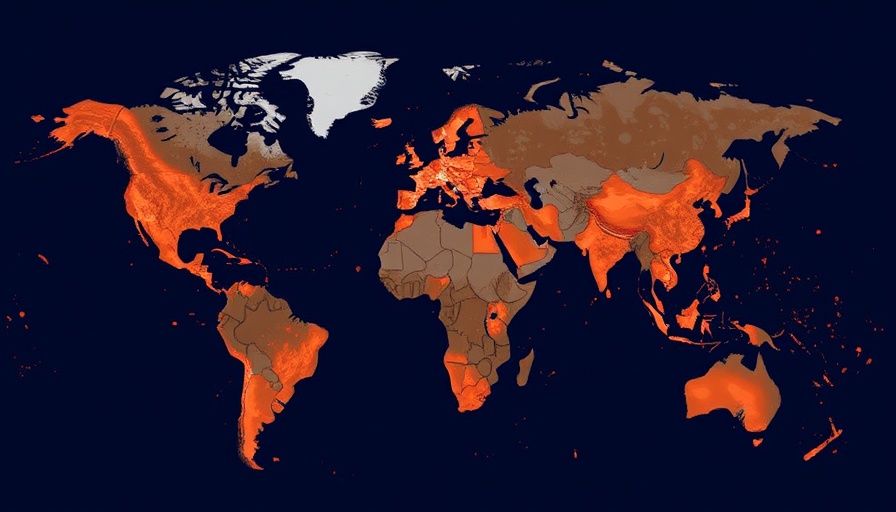
Understanding Immigration's Deeper Consequences
In the current socio-political climate, discussing immigration often unveils more than just surface-level arguments. The immediate effects, like reduced border crossings or increased deportations, are straightforward. A poignant example is Florida, which, after implementing stringent immigration laws, has found itself facing unintended challenges. As agricultural, hospitality, and construction sectors grapple with staff shortages, an estimated $12 billion decline in economic activity illustrates the serious fallout from these policies. The notion of relaxing child labor laws to fill gaps previously occupied by immigrants signals a troubling evolution in societal norms, indicating that the consequences of immigration policies ripple far and wide.
Unseen Links: Bird Flu and Public Health
The realm of public health is equally impacted by government decisions. Recent cutbacks in the federal workforce have hampered efforts to enhance testing for bird flu in essential products like milk and cheese. As the virus spreads through animal populations, the lack of resources to detect contaminated items could expose more humans to potential infection. While many current cases have mild effects, the threat of mutation into a more transmissible and dangerous form looms large, ultimately placing wider populations at risk.
Climate Change: Third-Order Effects on Economy
The implications of climate change extend beyond environmental degradation to encompass significant economic repercussions. As global temperatures rise, we can expect profound effects such as reduced agricultural yields, increased infrastructure damage from extreme weather, and disruptions to supply chains. A study forecasts that a 3-degree Celsius rise in temperatures could shrink the global economy by as much as 40% by 2100. This alarming statistic underscores the critical need for proactive climate policies that can address both immediate and long-lasting effects of climate change.
Invitation to Reflect on Policy Impacts
As we navigate these complex issues of immigration, public health, and climate change, it is vital to consider the multi-faceted repercussions of our policies. Understanding these second- and third-order effects encourages us to engage in meaningful discourse about the future we are creating. Legislative changes don’t exist in silos; they influence various sectors in interconnected ways insufficiently addressed by policymakers today.
 Add Row
Add Row  Add
Add 




Write A Comment